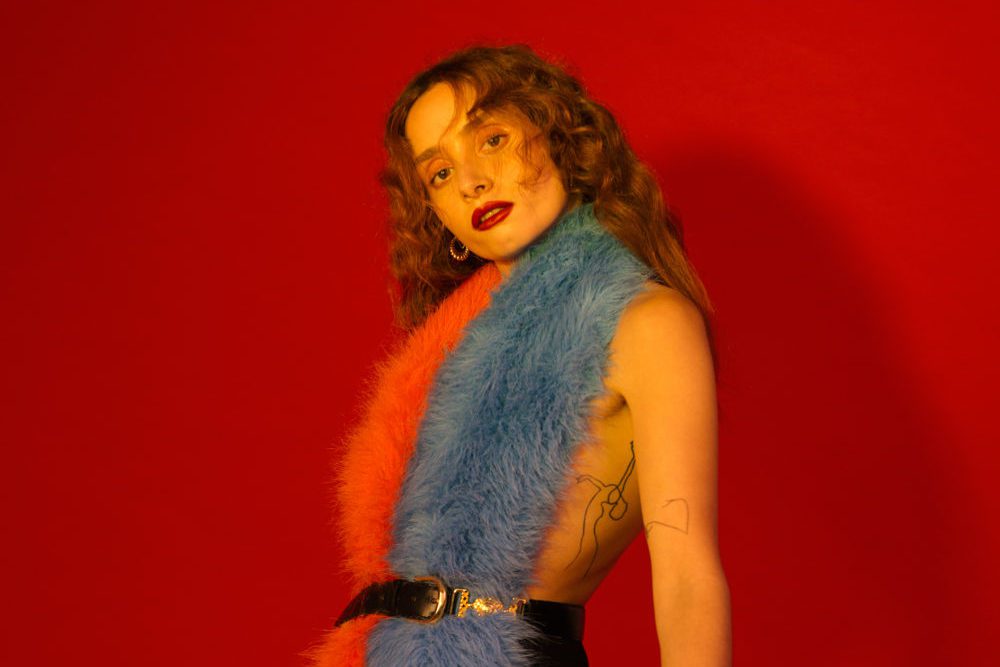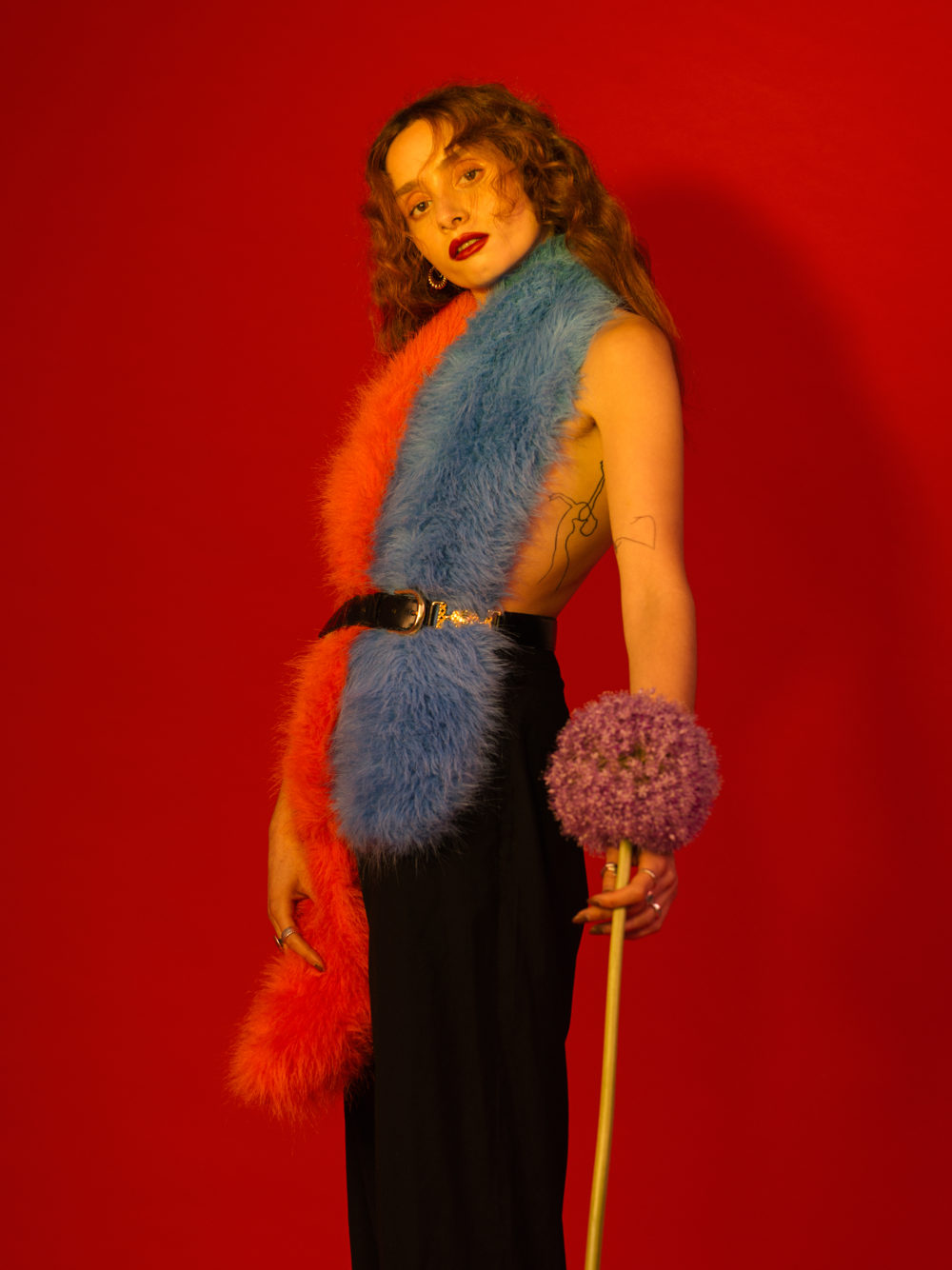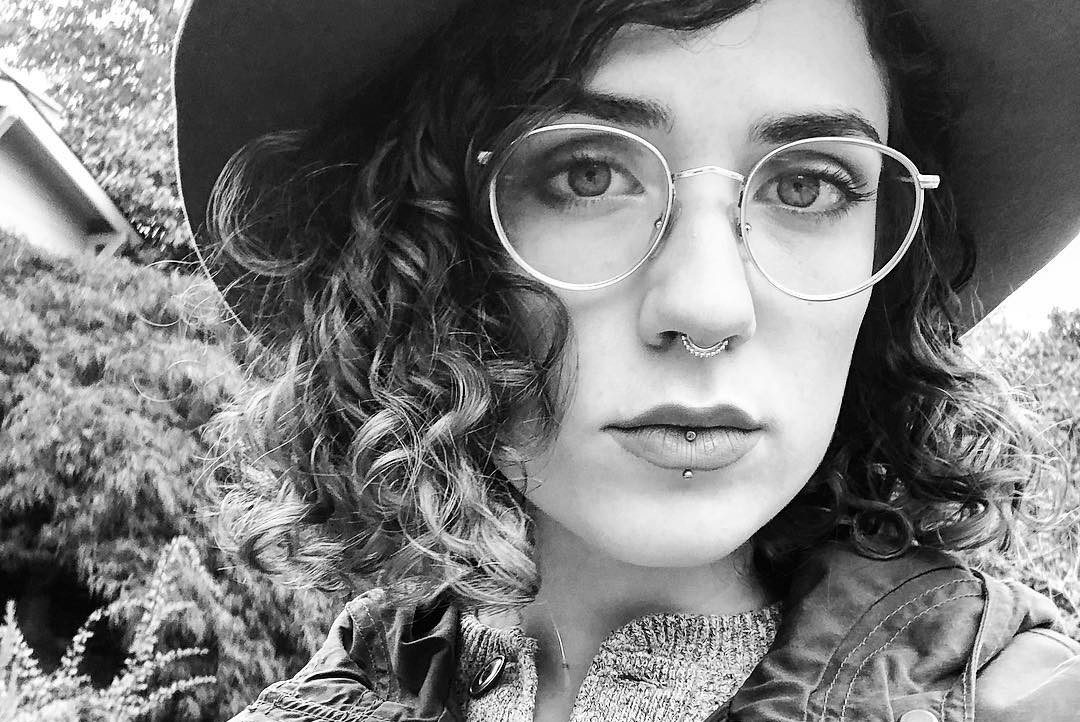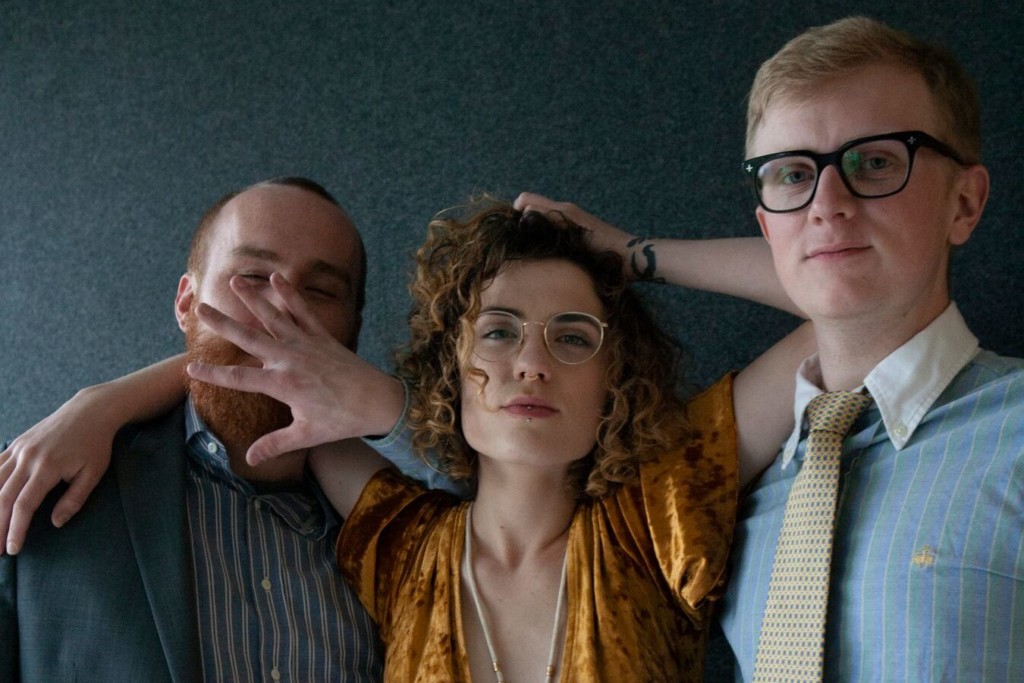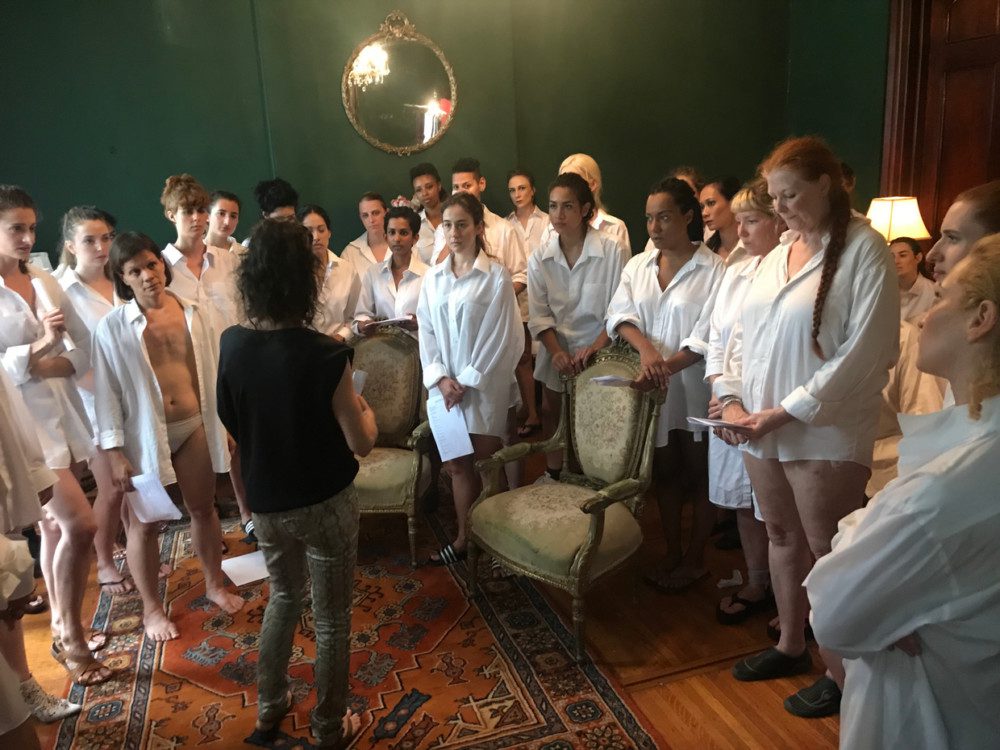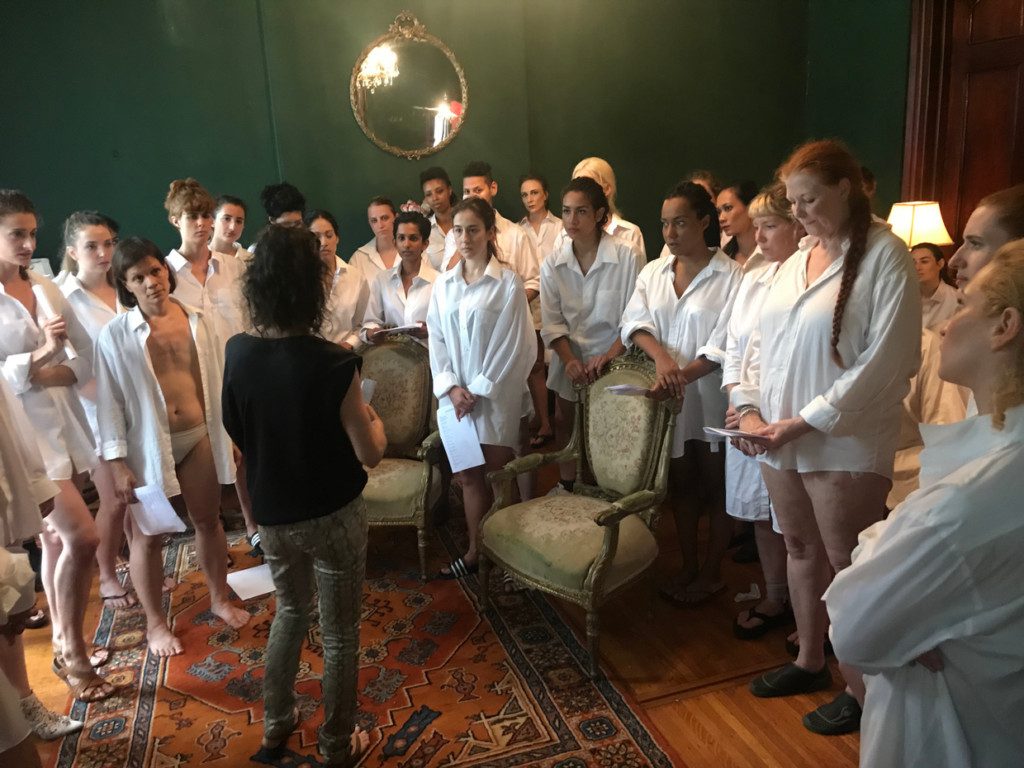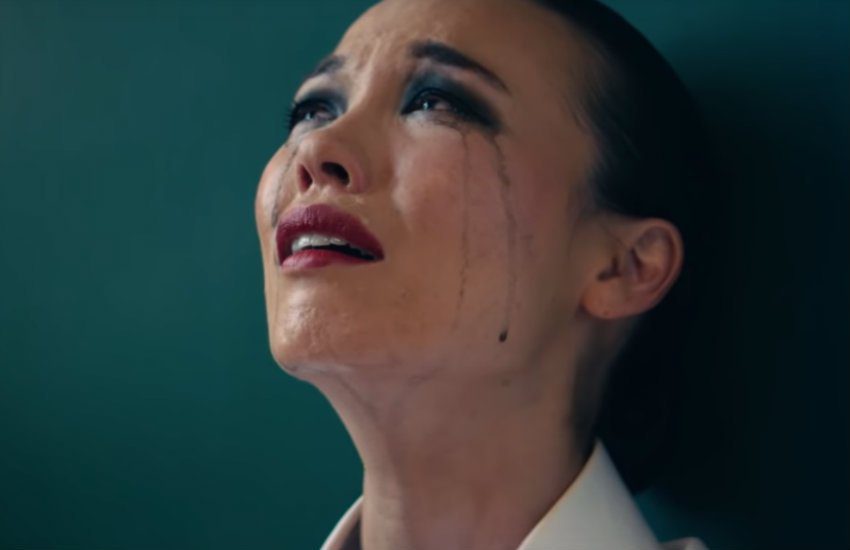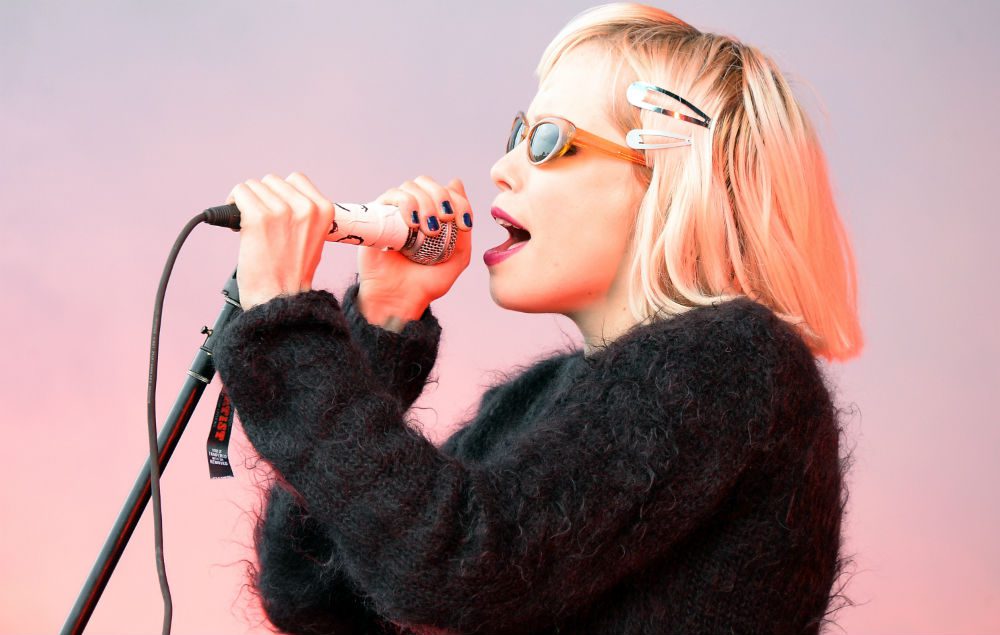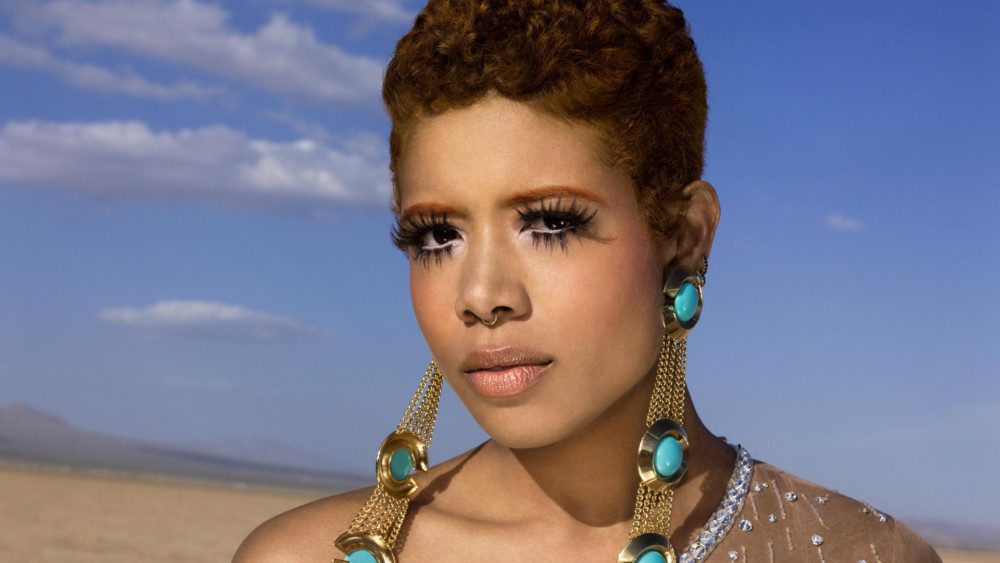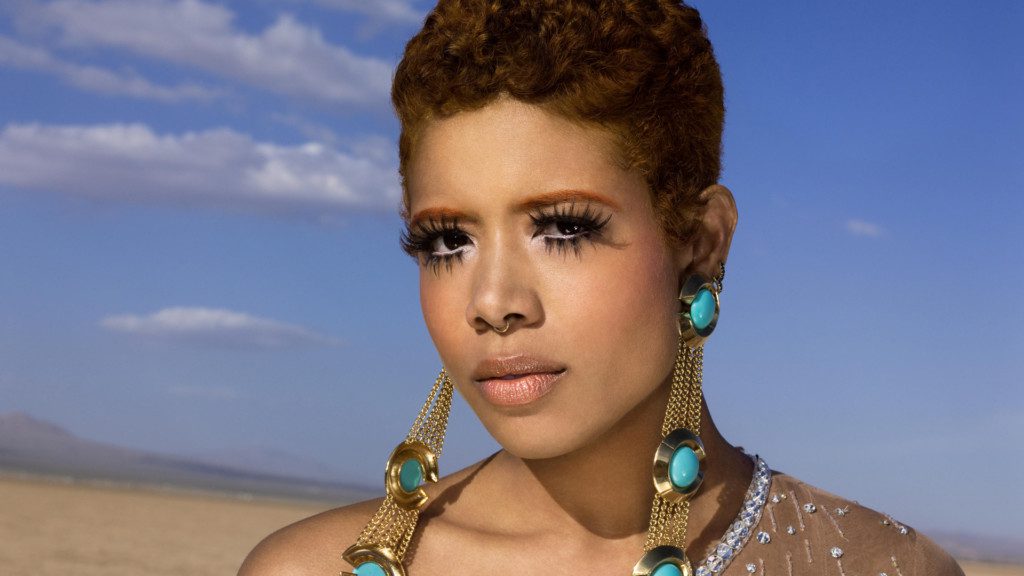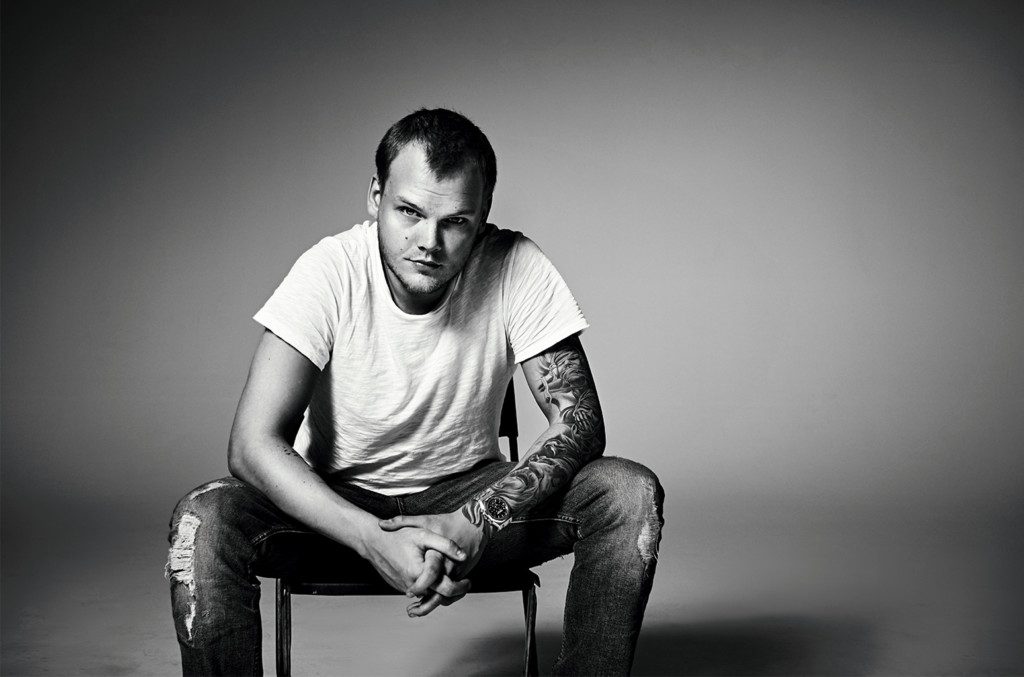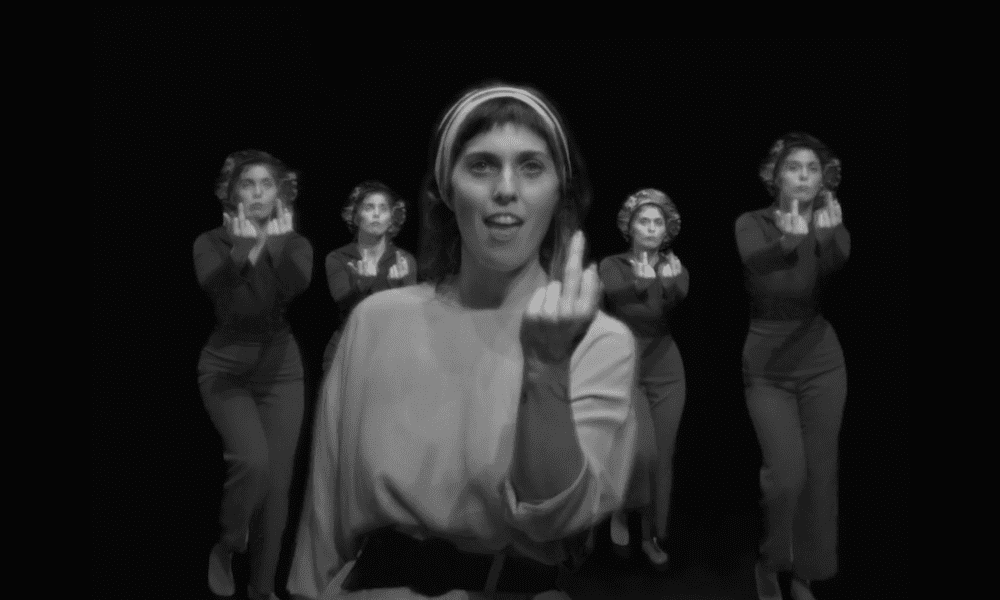Audiofemme’s Own Mandy Brownholtz Set to Release Debut DIY Novel Rotten
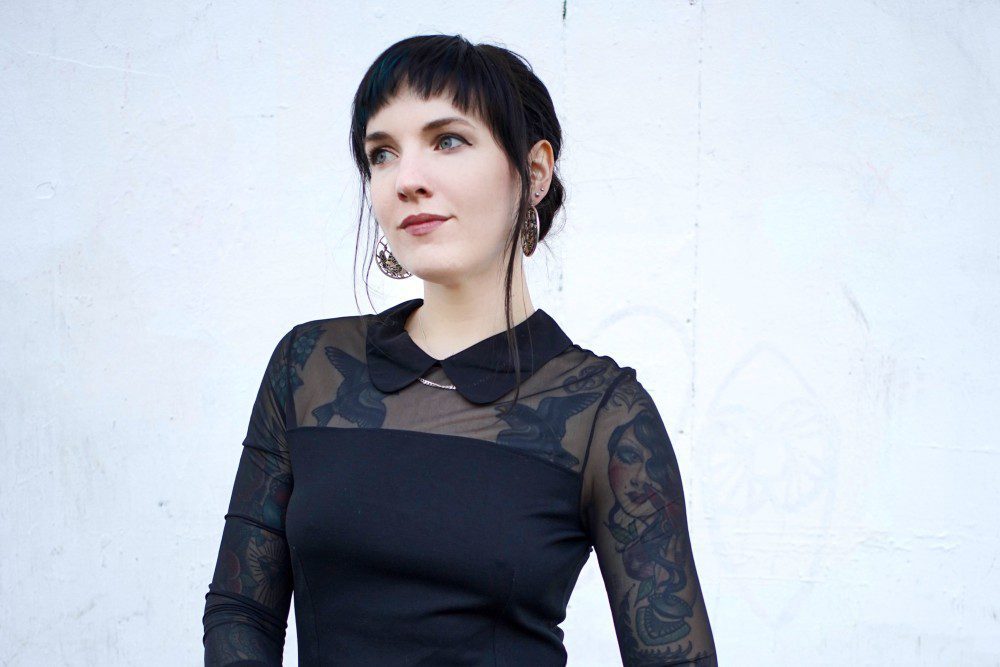
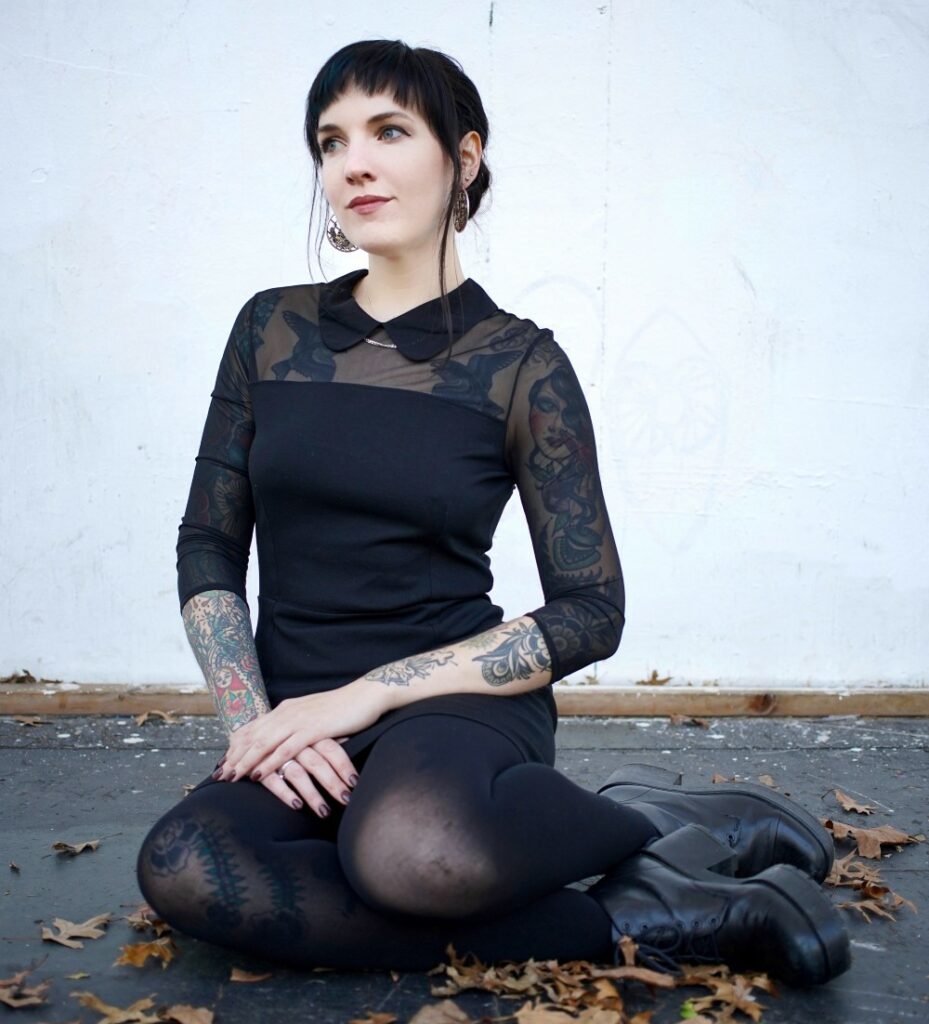
“I’ve spent my whole career promoting other people’s work,” says Mandy Brownholtz. “Now I’m in this position where I have to talk about myself and things that I’ve created; it’s this peek into my brain that I’ve never really allowed people to have, and it’s scary.” Brownholtz has certainly been indispensable to us here at Audiofemme, coming on board in 2017 to write album reviews, eventually expanding her incisive music coverage into her role as our Marketing Director after working for some of Brooklyn’s best known concert promoters. But this week, Brownholtz has announced her own epic endeavor – her self-published debut novel Rotten (edited by yours truly) is now available for pre-order, with limited-edition physical copies and some extra swag shipping June 22.
“This book is very, very personal to me, and the fact that I’m putting it out in the world for everybody to consume and have opinions about, it’s a lot of nerves,” she adds. “But nerves indicate that what you’re doing is important and that you care about what you’re doing. Nerves are a good thing.”
Rotten is a story that’s overdue to be told in fictional format. Set in Washington DC’s DIY scene – the same scene where Brownholtz came of age and cut her teeth in the industry, working at the legendary 9:30 Club – the story centers the experiences of freelance writer Viv Taylor, a hapless, haunted early-20-something tasked by City Paper with chronicling the history of Fort Rotten, the kind of party house that anyone who’s been to a basement show anywhere in the United States will recognize. But she has a complicated history with the venue and its residents – including one who sexually assaulted her during a night of hard partying. Grappling with the trauma of that event in a series as flashbacks, as well as the difficult childhood that led her to seek out “people who smelled bad and wore leather in ninety degree weather; ones with pieces of metal lodged in their faces and relentless tinnitus,” there are simply too many women who will find Viv’s story relatable, even if the specific setting is new to them.
“I wanted to write this book for women who have experienced these types of things. I wanted them to feel seen and I feel like I’ve succeeded in that, because almost every woman I know has a story like this and every woman I know that’s read it has been like, this really spoke to me and it resonated with me,” says Brownholtz. It’s been through many iterations – the setting evolved from a webseries she was working on in an MFA screenwriting class, and in its first form as a novel was more conceptual, examining the illusion of choice for women from all walks of life in a country that had just elected Donald Trump.
“I was mad. Everybody was mad; there were like five million things to be mad about. But I wanted to examine what choice and consent really mean when you’re making a choice based off of these circumstances that oftentimes you have no control over,” Brownholtz recalls. “And what really kind of put the idea in my head was that after Donald Trump became president I went and got an IUD, because [women] were like, ‘We’re all gonna lose our birth control!’ And the IUD was not good for me. I went and did this thing that I didn’t really wanna do, I made this ‘choice’ that I didn’t really wanna make, because I thought that I didn’t have a better choice.”
Combining these ideas, and interrogating free will from the perspective of a vulnerable young girl exploring her city’s tight-knit DIY scene, proved to be a perfect vehicle for Brownholtz to introduce herself as a novelist. Building on her own experiences and that of friends adds a layer of authenticity and dark humor to the accurate portrait she renders in Rotten – not just of the DIY scene itself, but also to the archetypes that populate millennials’ lives.
“I wanted it to be as much about what it feels like to be in your early twenties right now – the sexual politics of it, the confusion, and our struggle to communicate in a good way – as it was about heavy #MeToo stuff,” Brownholtz explains. And if you’re a Boomer who’s never been in a basement mosh pit, well, “that’s what fiction’s about – transporting you to a world that you normally wouldn’t have access to.”
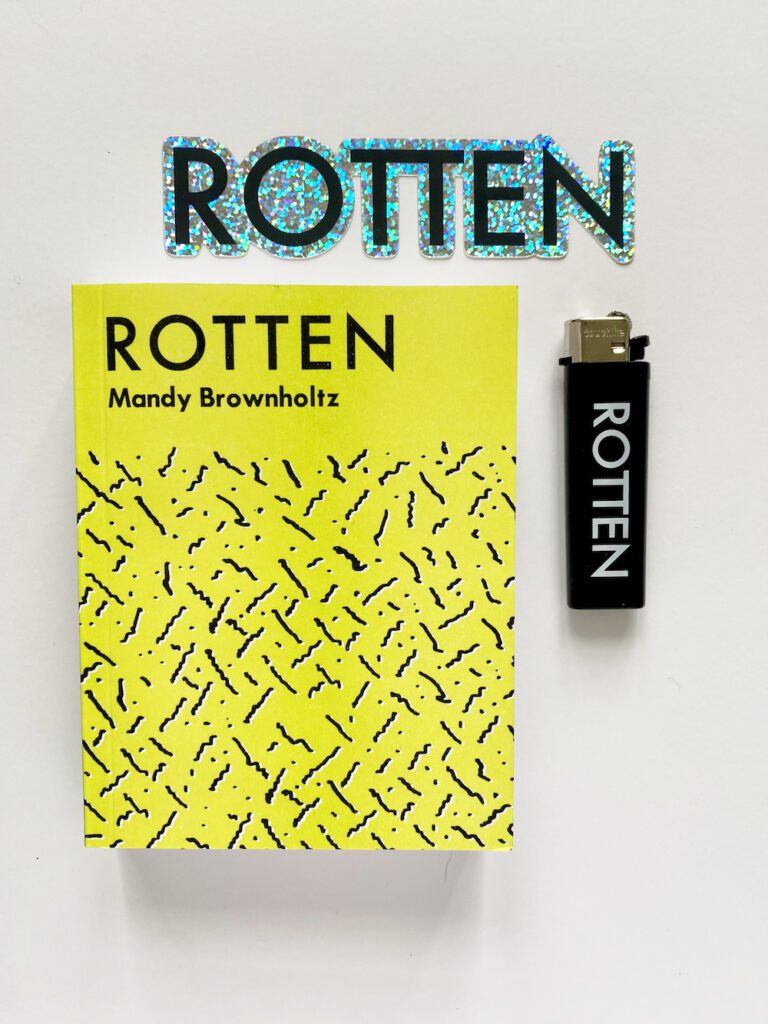
Brownholtz doesn’t see DIY scenes as inherently predatory, though she certainly recognizes that some aspects of the lifestyle can lend themselves to problematic situations just as easily as they can uplift otherwise lost souls. “It’s more intimate. It’s people who know each other very well, it’s relationships and friendships, it’s small and close-knit,” she says. “You’re paying with a crumpled five dollar bill at the door, and it’s about supporting bands that are traveling. It has this heart to it that’s a little different than the corporatized music industry machine.”
Last summer, everyone saw the flipside of that when the Instagram account @lured_by_burger_records outed the wildly popular SoCal tape label/record store as a predatory institution that had harmed dozens of young girls, either through grooming, gatekeeping, or outright assault (in the aftermath, Burger Records folded). Teenagers can hardly be blamed for failing to recognize that the subculture niche they’ve discovered can turn into a trap just as easily, particularly when drugs and alcohol are involved. Though some might feel capable of engaging with adults, the situation can change rapidly or evolve into trauma over time, once they begin to reflect on those years with some maturity.
“When I was seventeen and going to shows in places like [Fort Rotten] and hanging out with people who were a couple years older than me, I didn’t think anything of it. I was like, I’m an adult, I’m grown up. But then you get older and you’re like, wow, it was like mad inappropriate that I was hanging out – I was seventeen, I was a kid!” Brownholtz says. “I think it’s important that young people [have access to DIY] communities because I don’t think I would be the person that I am today if I hadn’t. But we have to somehow achieve this balance between welcoming younger people and making sure that people are not taking advantage of them.”
While the sense of community and creative energy a DIY scene fosters can be positive for the many, it also serves to obfuscate abuse – or potential for abuse – only discussed in whispers, and its perpetrators rarely suffer consequences, especially if they have clout. “It’s uncomfortable for men to have to disrupt their business arrangements, whether it’s something as legit as the Bowery Ballroom or some shitty DIY venue. It’s like, that guy is important, he’ll book my band, so I don’t wanna cause any strife with him – he’s only ever been nice to me,” Brownholtz says, adding that another function of Rotten‘s narrative, hopefully, will be creating insight and empathy in men.
“This book gets pretty cerebral and it’s pretty much in this girl’s head and you’re really seeing her anxieties and her fears and reservations about things,” she says. “I wanted them to see how damaging something can be, that they might think is kind of innocuous, just a ‘misunderstanding.’ It wasn’t a misunderstanding to her, and it’s gonna haunt her for fucking ever. I want them to get in the headspace of understanding that.”
That understanding needs to happen, Brownholtz says, because “men are the solution moving forward. Women getting angry is not gonna do anything but make men defensive. It needs to be men calling out their fucking friends when their friends do disgusting shit or say disgusting things. It needs to be about men shaming other men into line. That is gonna be the saving grace of the music industry.”
Viv Taylor may not be a sympathetic character to all, and that’s what Brownholtz intended. “I wanted her to be imperfect and I wanted her to be, at times, unlikeable. I wanted her to make bad choices because I wanted to show how so many things in our lives that are formative to us are things that we have no control over, like who are parents are, what our family is like, all this stuff. All of those things cause the wounds that cause you to seek out problematic people, that put you into these kind of situations,” Brownholtz says. “I also wanted to emphasize that just because she does kind of suck sometimes and makes bad choices, it doesn’t make her any less deserving of being believed or respected.” She never places the blame on her narrator’s shoulders; instead, we see an arc that turns her from a victim to a local hero as she gains back some of her agency from her abuser, her family relationships, and her friendships to emerge with a more holistic view of herself.
And ultimately, that’s Brownholtz’s personal narrative as well; after small publishers gave positive feedback, but balked at the touchy subject matter, she decided to self-publish. “I was shopping it around and then the pandemic hit,” she says. “It’s hard enough to get a book published as it is – most publishers only put out a couple titles a year. Even if I had gotten in at a small independent publisher, it might not have seen print until like, 2022 or 2023. I’d been working on this book since 2017, and I was like, you know what? I’m just done.”
She enlisted Jonny Campolo (a musician and designer she’d worked with at PopGun Presents, but never met) to put the book together while they were both out of work during lockdown. “Jonny and I shared a very unique vision; since it’s such a small run of books, we wanted them to feel like a nice object, like an art book. It was kind of cool to do it that way because it made it more personal and unique than just using the Amazon self-publish tool,” she says. “I’ve had a couple people be like, I wanna write a novel, and it’s like, okay, so fucking do it. That’s all that writing is – if you sit down and do your pages every day, you’re a writer, even if nobody has published it or read it. It took me a long time to be comfortable referring to myself as a writer because it seems so lofty and kind of silly, but then like it got serious and was like, no, that’s what I do right now. I kind of feel like I’m like bludgeoning myself to some sort of relevance, because I don’t have the MFA or the ‘right’ connections – I’m just sort of forcing my way into people’s heads and making them pay attention to me.”
“Self-publishing was mostly just a result of me getting tired of waiting for someone to give me permission. And tired of waiting for someone to tell me that I’m good enough,” she adds. “I realized that printing a book costs less than pressing a record, and bands press records all the time with no institutional help. More people should just publish their own books; it’s not cheap and I don’t expect to see a complete return on investment. This was an investment in myself, honestly, and it was an investment in my community too.”
Follow Mandy Brownholtz on Instagram and visit her website for ongoing updates.

